Complete Solutions to Matrix Matching Type of chapter 14TH GROUP ELEMENTS of Class 11 book with complete answers and questions
| Class 11 | CHEMISTRY |
| Chapter | 14TH GROUP ELEMENTS |
| NARAYANA | Matrix Matching Type |
| Number Of Questions | 14 |
| Academic Year | 2023-24 |
Match the following columns

View SolutionMatch the following columns

View Solution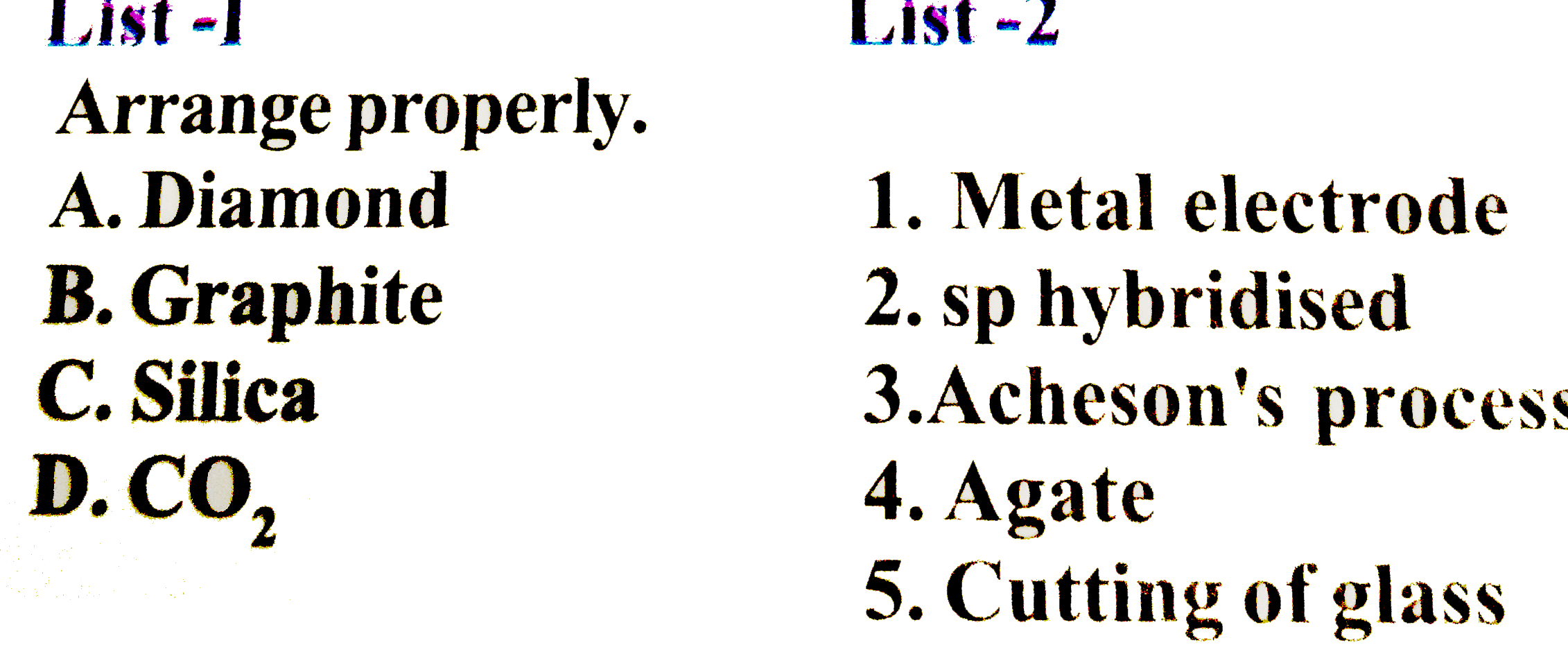
The correct match is
View Solution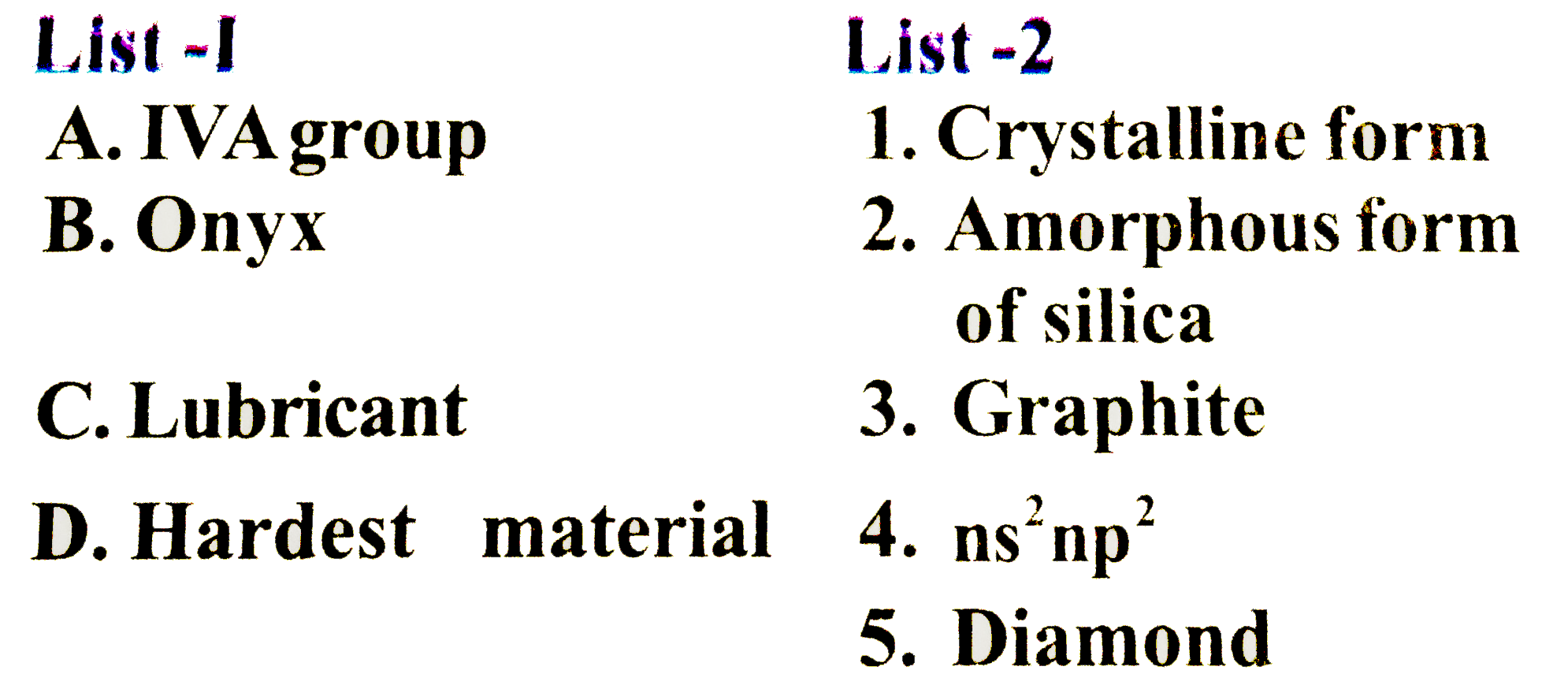
The correct match is
View Solution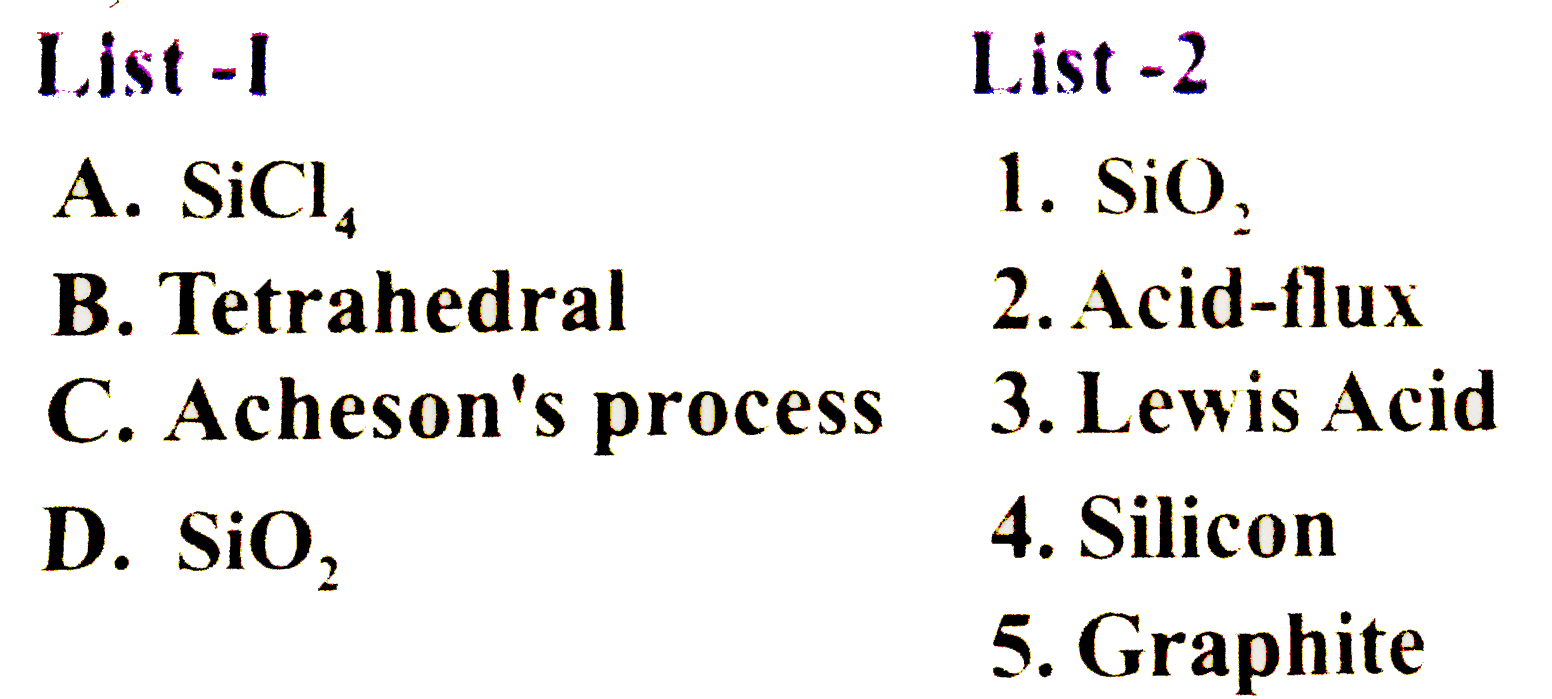
The correct match is
View Solution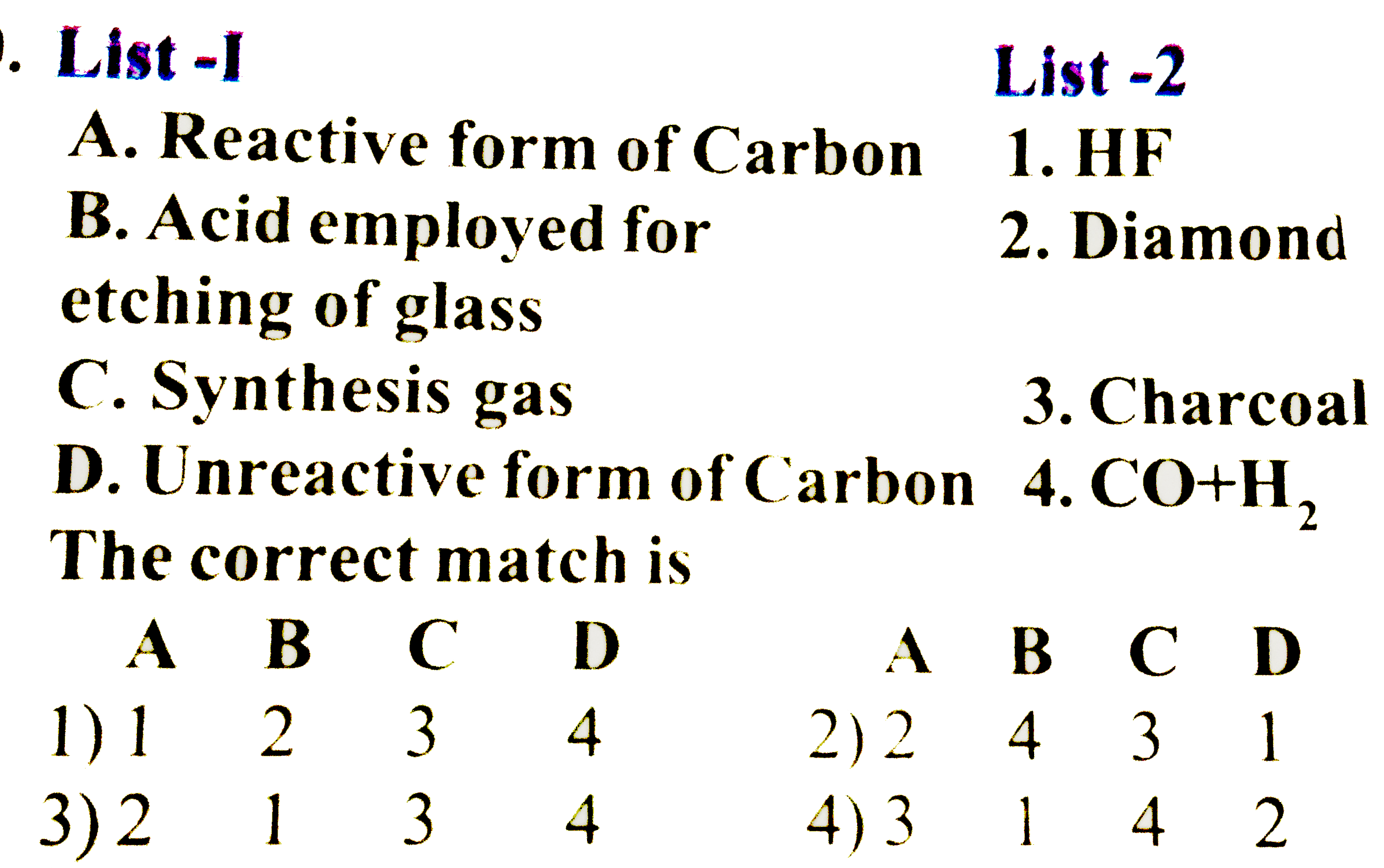
The correct match is
View SolutionMatch the following: ColumnI (A) `Si_(2)O_(7)^(6-)` (B) `(SiO_(3)^(2-))_(n)` (C) `(Si_(2)O_(5))_(n)^(2n-)` (D) `SiO_(2)`
column II (P) cyclic silicate (q) Two dimensional silicate (r) three dimensional network (s) Pyrosilicate
View SolutionMathc the following
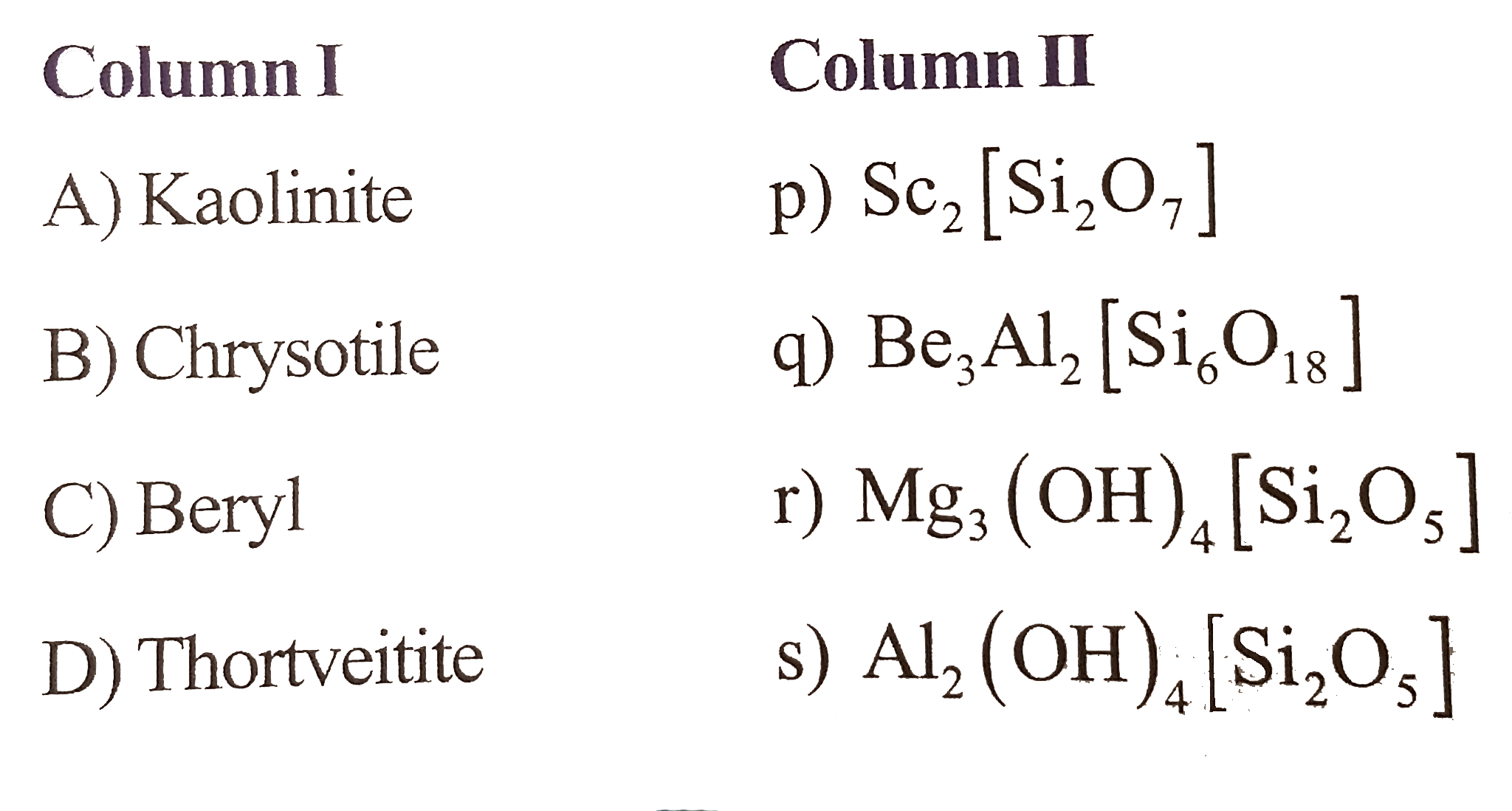
View SolutionMathc the following
(A) Two dimensional sheet silicate
(B) Pyroxene chain silicate
(C) Pyro silicate (D) Amphibole chain silicate
Column II
(p) `(SiO_(3))_(n)^(2n-)` (q) `(Si_(4)O_(11))_(n)^(6n-)`
(r) 3-corner oxygen atoms of each `SiO_(4)^(4-)` units are shared
(s) non-planar
View SolutionMathc the column:
Column I
(A) `Ca_(2)Mg_(5)[(Si_(4)O_(11))_(2)](OH)_(2)`
(B) `Mg_(3)(OH)_(4)[Si_(2)O_(5)]`
(C) `Ca_(3)Si_(3)O_(9)` (D) `LiAl[(SiO_(3))_(2)]`
Column II ltbr. (p) Cyclic silicate (q) Chain silicate
(r) Each tetrachedron share two oxygens with other tetrahedron
(s) Sheet silicate
(r) Each tetradedron share three oxygen atoms per tetrahedron with other tetrahedron.
View SolutionMatch the following:
Column I
(A) Density (B) Melting point
(C) Electro negativity (D) Metallic charcter
Column II (p) Increases from carbon to lead
(q) Decreases from carbon to tin and then increases
(r) Decreases from diamond to silicon and then increases
(s) Decreases from carbon to silicon and then it is almost same
(t) Decrease from carbon to lead
View SolutionMatch the following:
Column I
(A) `C Cl_(4)` (B) `SiF_(4)` (C) `PbH_(4)` (D) `SiCl_(6)^(-2)`
Column II
(p) Cannot be formed due to large size of surrounding anion.
(q) is a saturated compound
(r) is an unsaturated compound
(s) is a strong reducing agent
(t) is a strong oxidizing agent.
View SolutionMathc the column
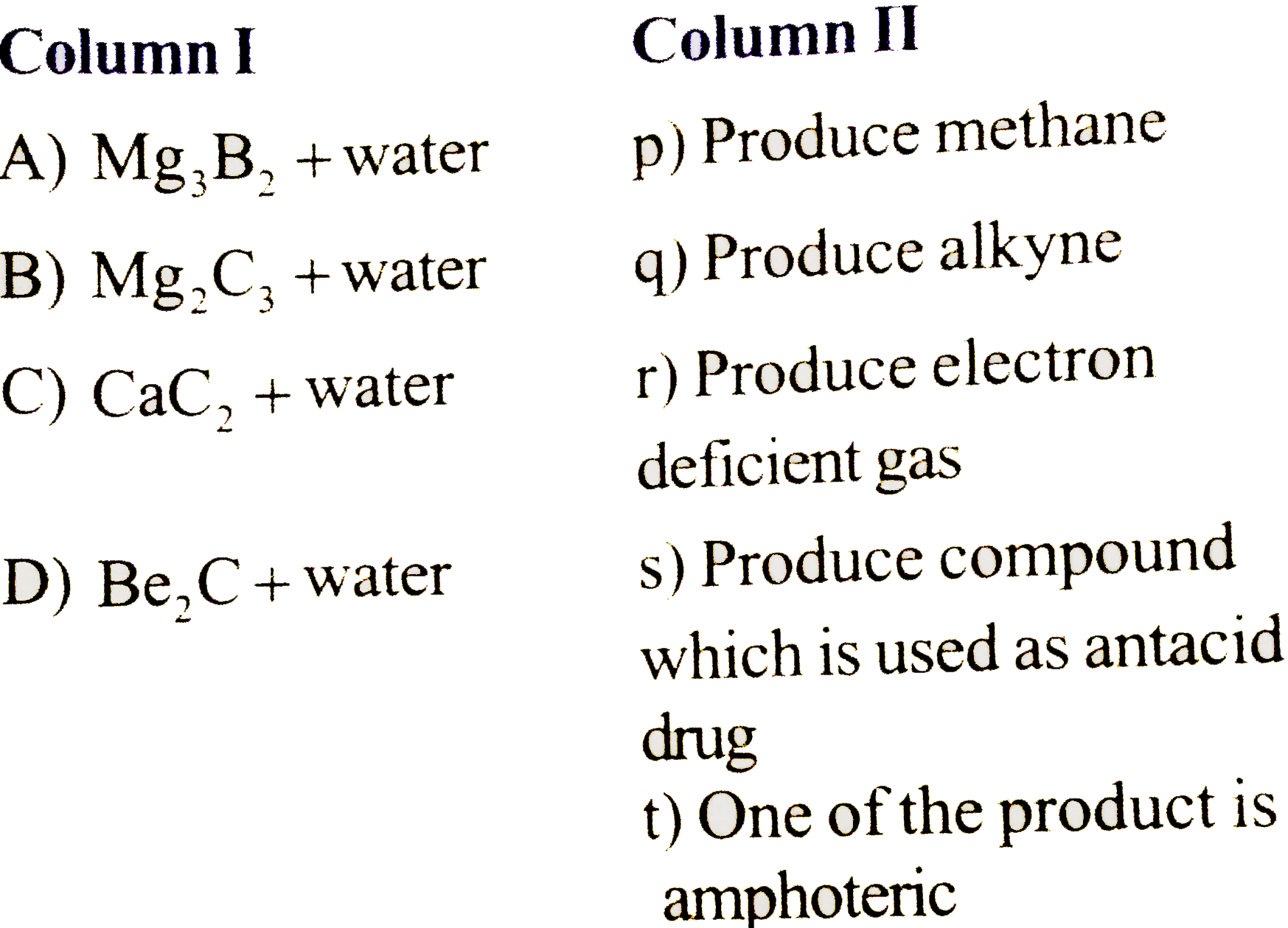
View SolutionMathc the following
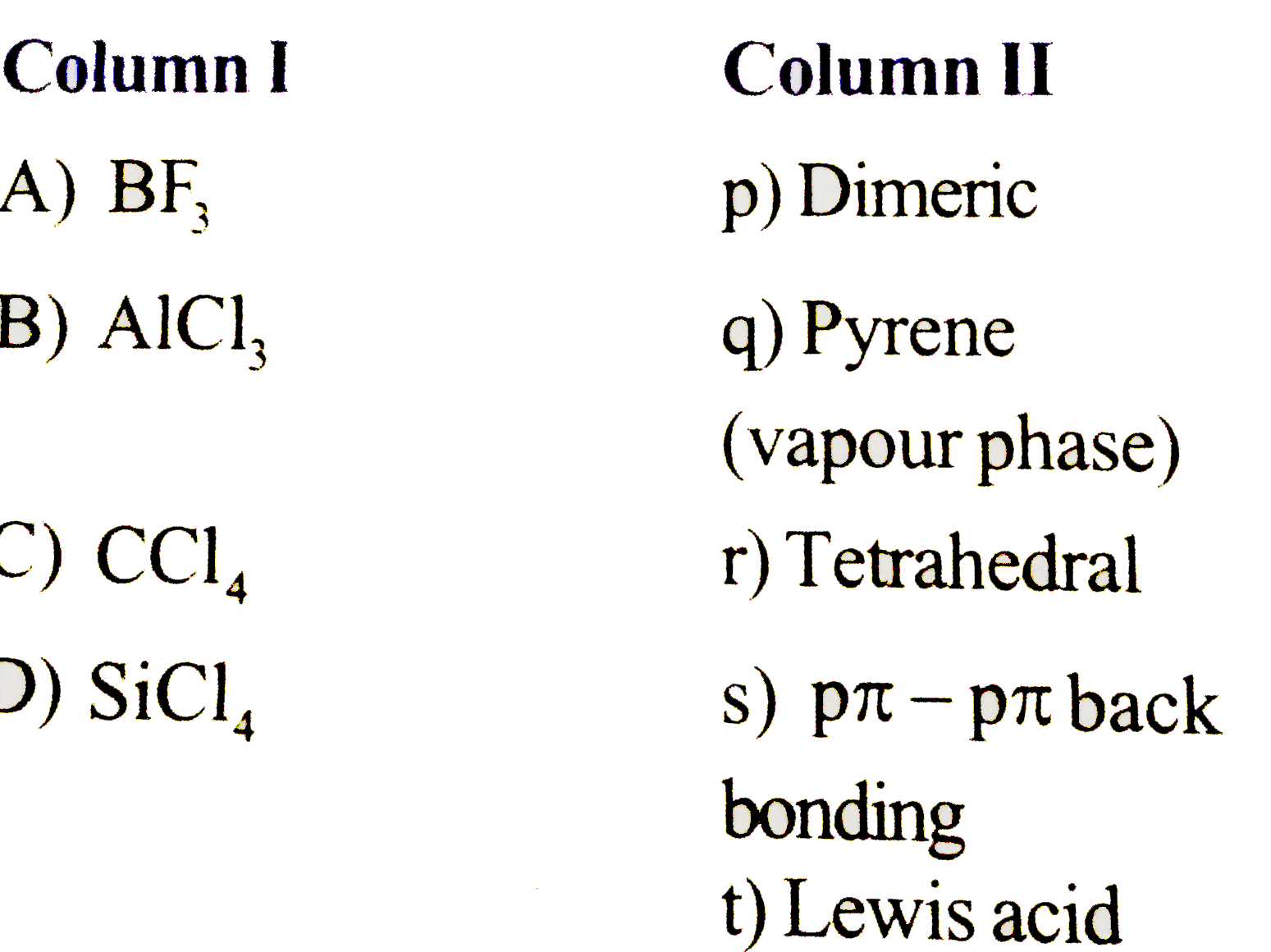
View Solution
Matrix Matching Type questions and complete solutions for chapter 14TH GROUP ELEMENTS of NARAYANA CHEMISTRY (HINGLISH) of Class 11
All Exercises from NARAYANA Class 11 CHEMISTRY 14TH GROUP ELEMENTS
- Assertion And Reason Type
- C.U.Q
- Comprehension Type
- Comprehension type Questions
- Compreshension
- Integer Type
- Integer type Questions
- Level - V Single Answer Type
- Level-I (C.W)
- Level-II (C.W)
- Level-II (H.W)
- Level-III
- Level-III (H.W)
- Level-IV
- Matrix Matching Type
- Matrix Matching type Questions
- Multiple Answer Questions
- Multiple Answer Type
- Multiple Answer type Questions
- Previous Iit Question
- Single Answer type Questions
- Statement Type
- Subjective Questions